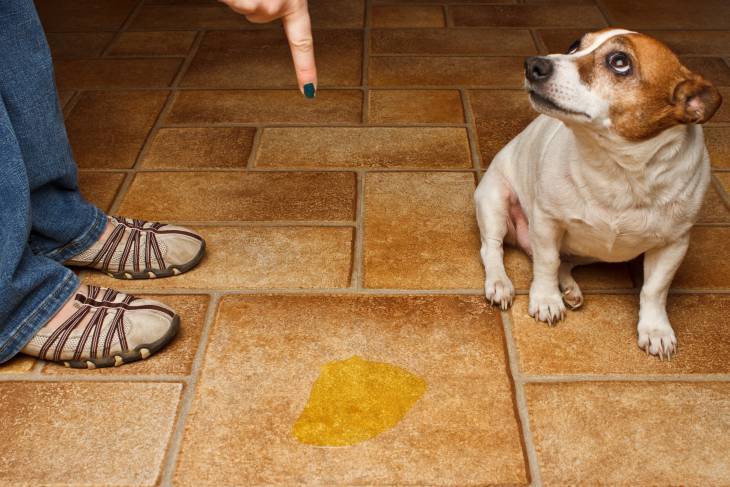Belly Bands for Dogs (Effectively Keep Messes to a Minimum)
If you own a puppy or a dog in the autumn of his life, you know accidents are going to happen. The best way you can deal with these unpleasant mistakes is to keep them to a minimum. This is why belly bands can be an indispensable accessory.
What are Belly Bands?
Essentially, belly bands are wraps that a dog can wear around his waist during the house training phase. It helps to prevent non-housebroken dogs from accidentally peeing where they shouldn’t. It is also an effective tool to prevent dogs from marking their territory, or to aid incontinent dogs who can't get outside to do their business promptly.
Belly bands can be purchased for both male and female dogs. Obviously, the design of the belly bands differs since male and female dogs pee from different places. There are plenty of belly band-type products that you can purchase from various specialty stores, although do-it-yourselfers may be able to create one at home.
How to Use a Belly Band
Putting a belly band to use is rather simple. The main reason for its ease of use is due to its design, which is rather uncomplicated. As long as the band itself is secure around the dog - without being too secure to the point of discomfort - you and your dog will be in good shape.
With that said, you should keep in mind that if you are using a belly band to housebreak a dog, you should not use it as a solution. Rather, you should use it as a tool to train him to do his business outside. As with any training procedure, there are some tactics you can deploy once the belly band is in place.
For instance, you should keep the belly band on your dog unless his gives you clear clues that he needs to go outside, or if the two of you are outside. In these scenarios, if he does his business where he’s supposed to, be sure to give him praise and possibly even a treat. Much like in other training scenarios, positive reinforcement goes a long way.
If your dog does pee in the belly band, your first inclination may be to remove it from his waist. However, you will want to refrain from doing this until he shows signs of not being pleased about the situation. You dog will learn that it is not a good idea to pee with the belly band on, and if you’re doing things right, he’ll also know that the band will be removed if he goes outside to pee.
Over a relatively quick period, your dog should get in the habit of giving you the signal when it's time to go outside to go to the bathroom. As these signs manifest, you can start removing the band for short time intervals under your watchful eye. Eventually, this time interval will increase until the belly band is no longer needed.
Taking Care of the Belly Band and your Dog
Store-bought belly bands are machine washable and are durable in nature. This is especially important if you are planning on using a band to help out your incontinent older dog. It is also important that you keep the band as clean as possible.
You should also put the belly band on your dog when you can supervise him. Even though bands are designed for you to remove them easily, your dog does not enjoy this same luxury. If it gets snagged on a foreign object or becomes too oversaturated with urine, your dog could end up in pain.
Be Sure Your Dog Knows How Much You Love Him

Accidents are tough to deal with, regardless if your dog is just a puppy that hasn’t learned any better or an older dog that just can’t make it to the lawn in time. However, even as you bring the belly band into the fold, it’s important that you keep in mind that your dog does not mean any harm or malice by accidentally going to the bathroom, and you should act accordingly. Ultimately, this will make the process of wearing the belly band better, and it will also make the bond between you and your dog stronger.

